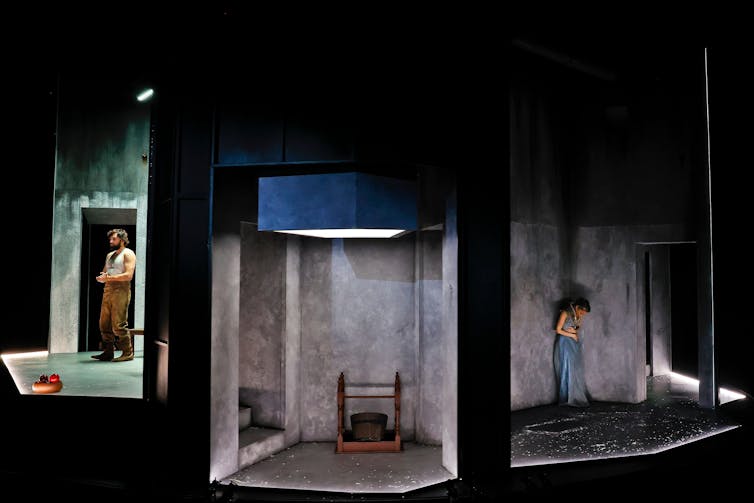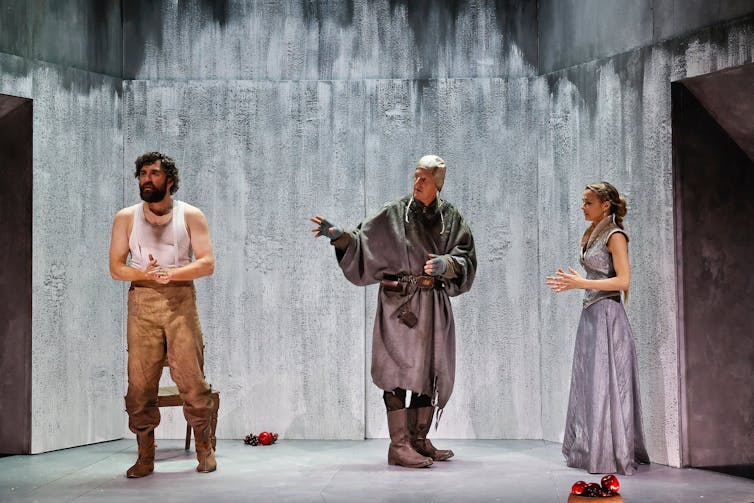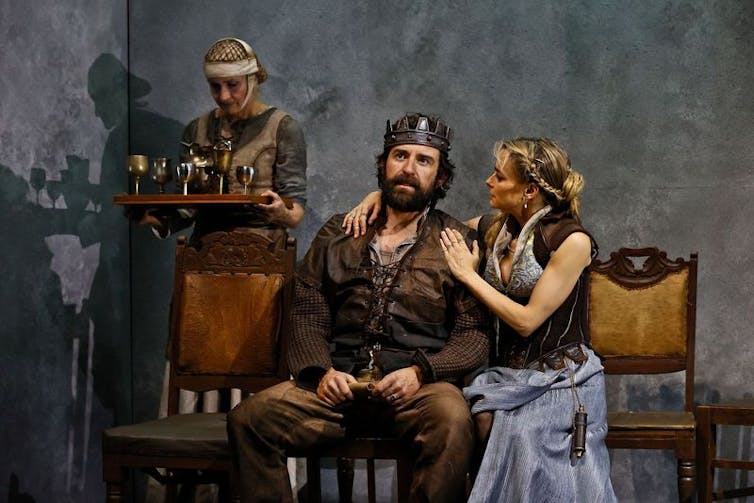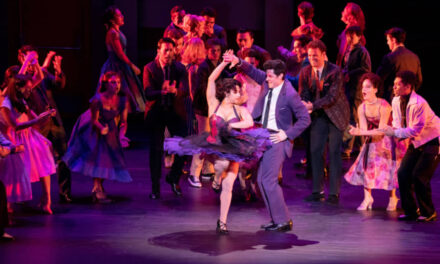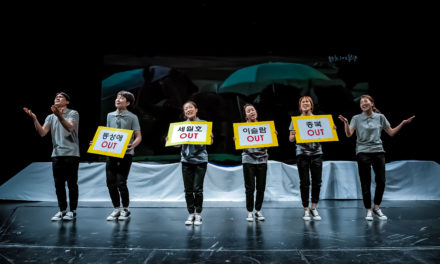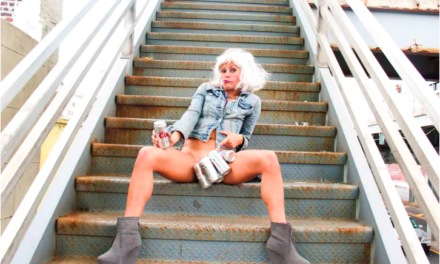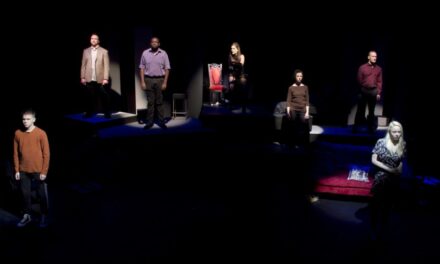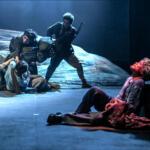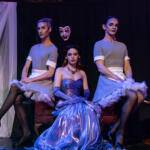What if significant portions of William Shakespeare’s text for Macbeth had been lost, leading to a narrative in which Lady Macbeth charts a different path, free from madness?
This is the twist in Scottish playwright Zinnie Harris’ show Macbeth (An Undoing). First presented last year at the Lyceum in Edinburgh, the contemporary re-imagining of the classic tale is now premiering at The Malthouse Theatre.
Harris is celebrated for revitalizing timeless works from the Western canon, infusing them with freshness and innovation. In Macbeth (An Undoing), Malthouse Artistic Director Matthew Lutton directs an ensemble cast which interweaves the original text with fictional “lost” scenes and re-imagined story fragments.
Billed as as an “adrenaline fuelled epic”, this is a rollicking tale in which grandiose Shakespearean proclamations are juxtaposed with contemporary vernacular and asides made to the audience.
A stereoscopic effect
The show’s ten actors largely work in and around Dann Barber’s imposing, monotone set. It is a labyrinthine structure of gunmetal-grey rooms and passageways on a rotating stage. The actors can variously walk around and through Castle Inverness at a pace, or be framed within contained lit vignettes.
This stereoscopic effect is a satisfying and artful conceit, setting up a kind of analogue fade where scenes appear and disappear. But it does establish a particular spatial constraint for the ensemble. The flat perspective is perfect for a tableau effect – such as witches shivering under snowfall – but little to no downstage space sometimes results in awkwardly composed clusters of actors.
The costumes are simple, stylish and streamlined, featuring muted forest colours which pop against the monotone panels. In a nod to the postdramatic, the Shakespearean world of rustic belts, cinched-in waists and thonged doublets is slowly undone as the play deconstructs – exposing modern underwear and the mechanics of the headset technology that amplifies the actors’ voices.
Solid performances – but a lack of presence
Award-winning actor Bojana Novakovic plays Lady Macbeth with a kind of daily, quotidian energy. Macbeth himself (played by Johnny Carr) is equally restrained. Both actors skirt the territory satisfactorily, but I was a little underwhelmed by their lack of physical presence, which is required to effectively convey the terror and weight of Macbeth’s story (even a re-imagined version).
I do wonder if the casual, soap-opera style of delivery was a directorial decision. It felt peculiar to me. It was lacking the necessary presence and depth needed for these roles, detracting from my engagement.
However, I did enjoy David Woods as a simmering Macduff and Natasha Herbert as Carlin, the witty and acerbic witch/servant. Herbert, in particular, has an embodied gravitas and grounded physicality that the text requires. She is funny, complex and compelling in the role.
Woods’ grimy Macduff – suspicious of Macbeth having committed the regicide of King Duncan – broods and rages in the corner. His version of Murderer is a silent, gum-chewing brute with a sustained physicality that remains potent even as he says nothing.
Despite its two-and-a-half hour run time, the show moves at a cracking pace.
Jethro Woodward’s sound design is relentless throughout, mixing deep rhythmic drones with textured crunches and spatialized audio. The aural space is cinematic and constant: music swells between sections to indicate scene changes and background sounds – including bells, grinding tones, knocks and ghostly fluttering wings – fill the auditorium.
The post-show music was also an apt choice, with Led Zeppelin’s thrashy Immigrant Song.
Overall, a bit undercooked
Ultimately, I felt slightly disappointed in the work, which was presented as a radical re-telling. The meta-commentary that runs through the play asks us to embrace a new trajectory for Lady Macbeth, but seems unresolved in its delivery and tone.
The play sets up big questions. Who is really in control here? Who can we trust? How do we hold it together when all else is falling and failing? Yet for all the dripping, blood-covered bodies (the blood is convincing), the work feels undercooked.
Its monumental themes of power, ambition and perspective deserved a larger, bolder set of choices. The stage combat could have also used more work as it was questionable. Perhaps the show will run itself in as the ensemble builds cohesion over time.
Either way, the audience at opening night seemed appreciative and engaged in this story of ambition, power and grief.
This article appeared in The Conversation on July 11, 2024, and has been reposted with permission. To read the original article, please click here.
This post was written by the author in their personal capacity.The opinions expressed in this article are the author’s own and do not reflect the view of The Theatre Times, their staff or collaborators.
This post was written by Kate Hunter.
The views expressed here belong to the author and do not necessarily reflect our views and opinions.


